Malaysians are hungry for new political parties, a US-funded survey has found.
According to the survey commissioned by the US-based International Republic Institute (IRI), 50 percent of respondents said they want to see new political parties, while 44 percent are satisfied with current choices.
Another six percent were unsure or refused to answer.
The response, collected between March 7 and 24, marks a four percent increase in a desire to see new parties in future elections compared to when the same survey was run in October 2021.
The survey polled 1,207 Malaysians aged 18 and above. The IRI's survey arm said the respondents were nationally representative, and the data was post-weighted for state, gender, age, ethnicity, and urbanicity based on 2019 estimates by the Statistics Department.
It said the margin for error did not exceed 2.8 percentage points.
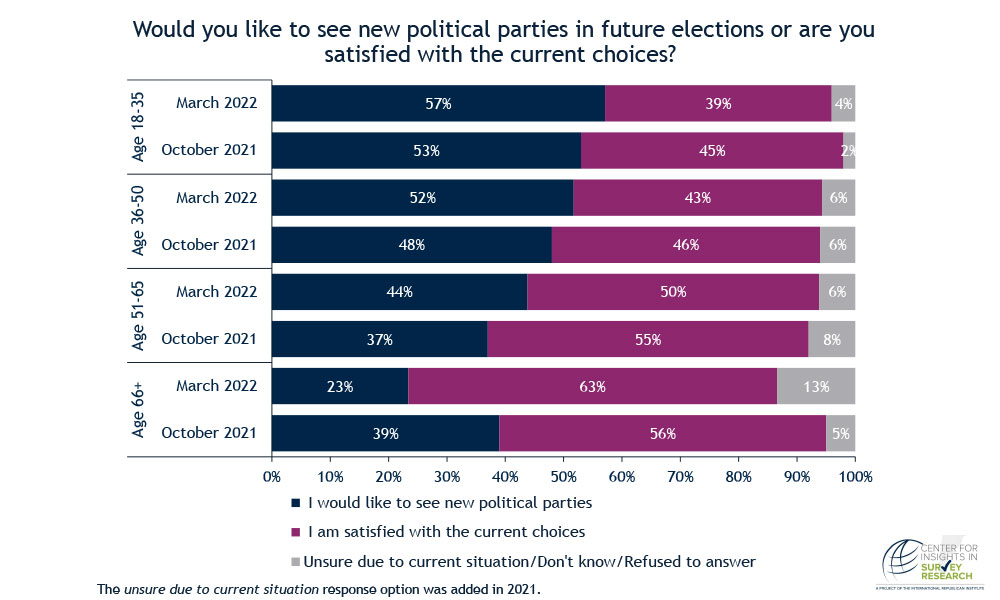
The demand for new political parties rose across all age groups from 18 to 65, with only those above 66 having a reduced appetite for new options.
Youths aged 18-35 had the highest demand for new parties at 57 percent, while 52 percent of those aged 36 to 50 had the same desire.
For those aged 51 to 65, half (50 percent) were happy with the current crop of parties, while for those 66 and above, 63 percent were satisfied.
Ethnically, the want for new parties was strongest among Indians (62 percent) and Chinese (59 percent), although desire from the latter group had decreased from 65 percent in Oct 2021.
As for Malays, 46 percent wanted new parties, while 42 percent of bumiputera shared the same hankering.
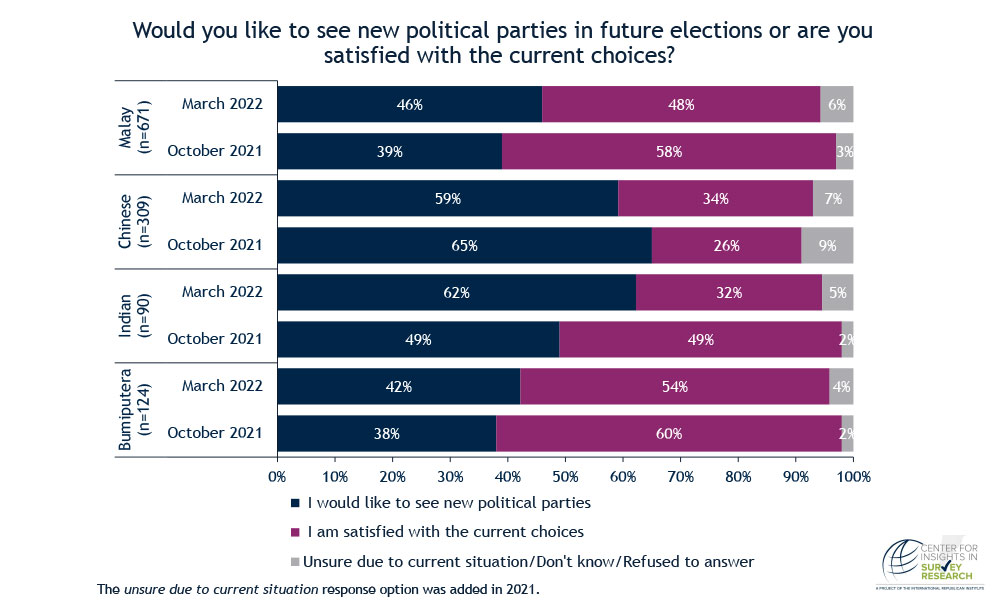
It is unclear why the demand for new parties is on the rise.
However, between the October 2021 and the March surveys by the IRI, Malaysia saw three state elections - the Malacca, Sarawak, and Johor polls.
In all three elections, BN and its Sarawak offshoot GPS won resounding victories, while Pakatan Harapan and Perikatan Nasional were dealt heavy losses.
In Malacca and Johor, BN won supermajorities, capturing more than 66 percent of seats despite winning less than 45 percent of the popular vote.
BN's major victories were mainly due to it benefiting from the first-past-the-post electoral system, where it was able to win seats in multi-cornered fights despite having less than 50 percent of the votes.
With the exception of Muda, new post-GE14 parties that contested in the Johor polls - Pejuang, Putra, and Parti Bangsa Malaysia (PBM) - performed poorly at the ballot box and lost all their deposits.
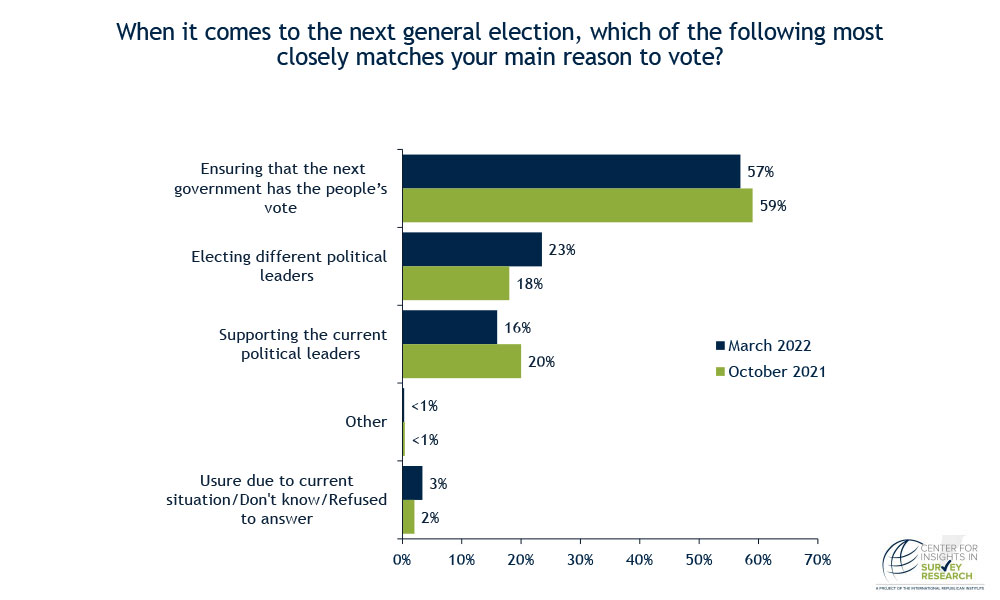
Fervour for elections declining
Meanwhile, despite the increased demand for new parties, the IRI noted that only 23 percent of the same respondents listed electing different political leaders as their main reason to vote in the next general election.
A majority (57 percent) were more concerned about ensuring that the next government had the people's mandate.
However, the IRI survey indicated that fervour for elections is on the decline.
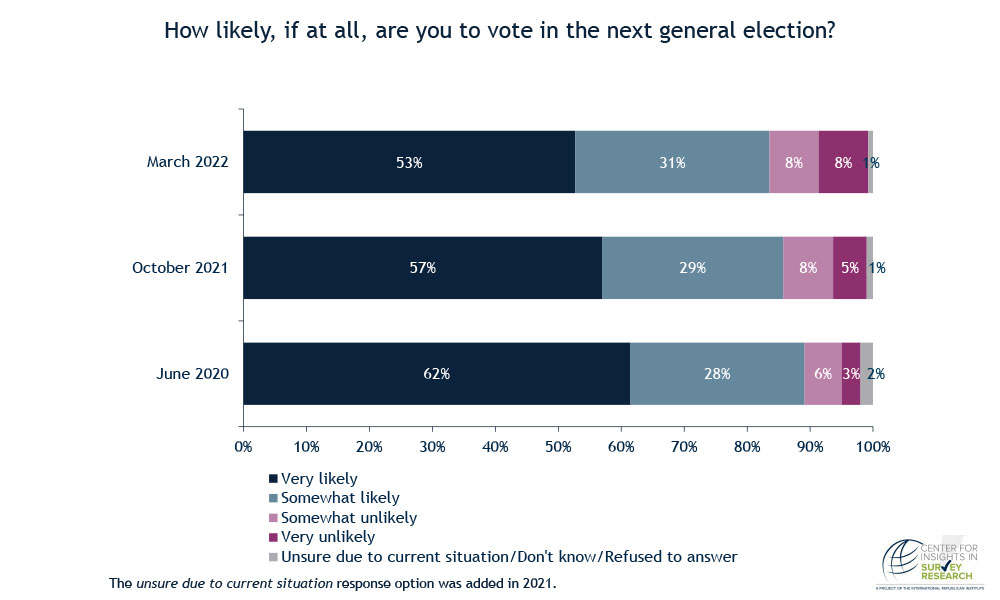
The survey appeared to indicate that turnout in the next election could be low, with only 53 percent saying they were very likely to vote, compared to 57 percent in Oct 2021.
Another 31 percent said they were "somewhat likely" to vote, indicating that they may be on the fence on whether to go to the ballot box.
Overall, only 17 percent of respondents were very satisfied with the state of democracy in Malaysia, while 44 percent were "somewhat satisfied", 27 percent somewhat dissatisfied, 11 percent very dissatisfied, and one percent unsure. - Mkini
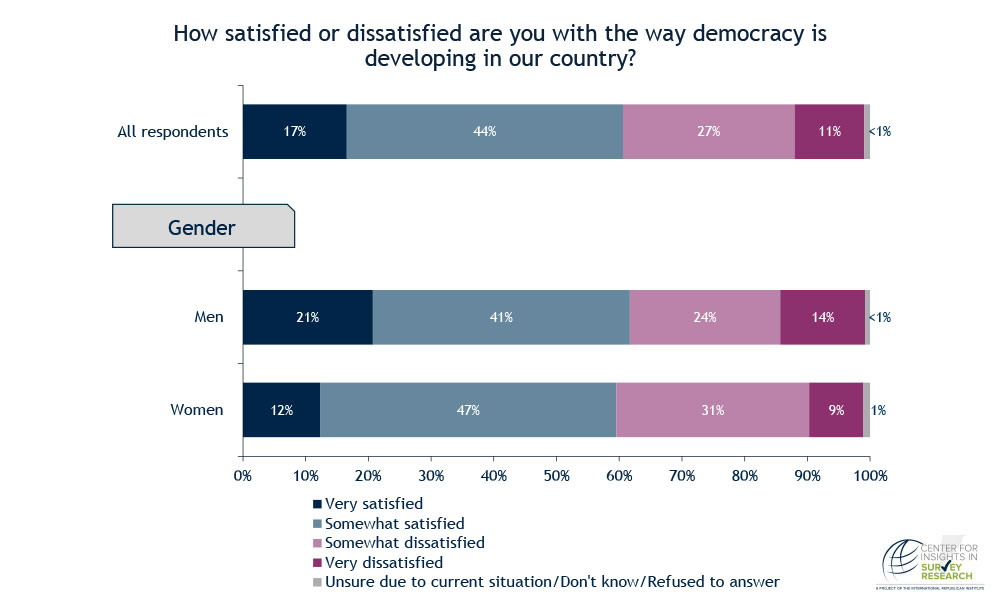




No comments:
Post a Comment
Note: Only a member of this blog may post a comment.